CAMP TAJI, Iraq - In the farthest recesses of this sprawling base there is an area where, night and day, the sound of hammers smashing metal mix with the deafening tones of engines revving.
Throw in the heat, grease, oil and sweat and you have a typical day at the motor pool.
For Soldiers of Company E, 4th Battalion, 227th Aviation Regiment, 1st Air Cavalry Brigade, 1st Cavalry Division, this environment is what they call home, as they constantly repair damaged vehicles in order for the battalion's aviation mission to move forward.
The mission of the motor pool however is to support the aircraft and subsequent vehicles used to help keep the 'birds' in the air, said Staff Sgt. Erica Raby, from Brooklyn, N.Y., shop foreman with Co. E.
"It's usually very busy here, we're working a lot on Polaris', Gators and generators, things that run 24 hour ops," she said. "Some of the things we work on like the Polaris' are outside of our [Military Occupational Specialty] and it's usually little things, like broken tires and engines we're fixing."
Raby said the motor pool is still fixing some of the equipment left by the previous unit five months ago, which has been time consuming.
"The old unit left some stuff which was messed up and we're still trying to get through all that before we can move to our own vehicles," Raby said.
A lot of the damage to the vehicles repaired in the motor pool is usually due to operator error, Raby said.
"Usually the damage is minor and we fix a lot of vehicles that have been in accidents," Raby said. "But mostly it's due to operator error."
Spc. Charles Booth, from Long Branch, N.J., a quartermaster and chemical equipment repairer, said his main job is working on the Polaris', used primarily for transportation around the airfield.
"The Polaris' bring equipment to and from the aircraft on the flight line to the pilots," he said. "They also help bridge the communication and distance between the battalions."
Some of the main problems with the Polaris' are screws in the tires from the flight line and those which are in need of regular service.
"Today we have a Polaris that we're changing the half-shaft on because the u-joint was worn," Booth said. "That's a common problem with these vehicles."
Most problems with the Polaris' can be attributed to general wear and tear.
"It's mainly because of the heat and environment and the amount of abuse they get," Booth said. "That makes it easier for them to break down."
Other types of vehicles are bought to the motor pool in larger numbers than the Polaris.
"Vehicles like re-fueling trucks require a lot more attention than a Polaris which usually just needs servicing," Booth said. "Usually it's not that bad, just a lot of problems with shifting."
But one thing is certain; there is never a shortage of vehicles waiting to be repaired.
"It's not very often that there'll be nothing in the bay to work on," Booth said. "It's a rare occasion indeed."
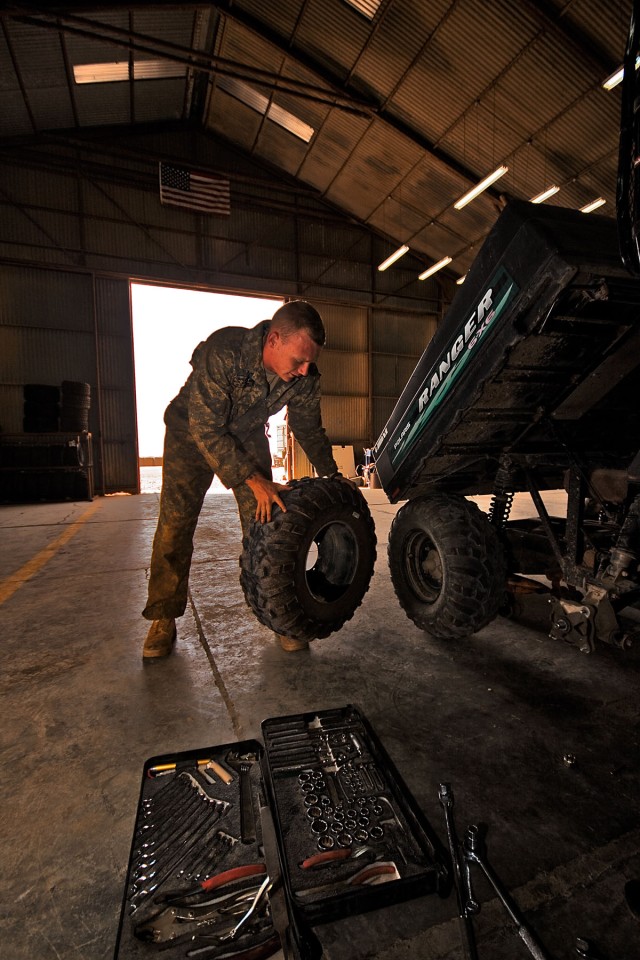
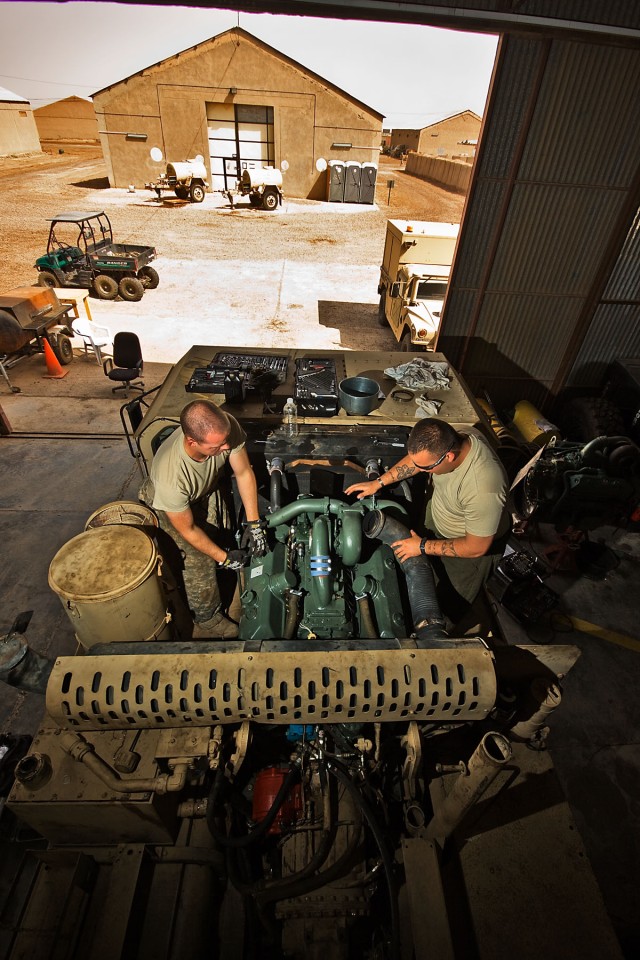
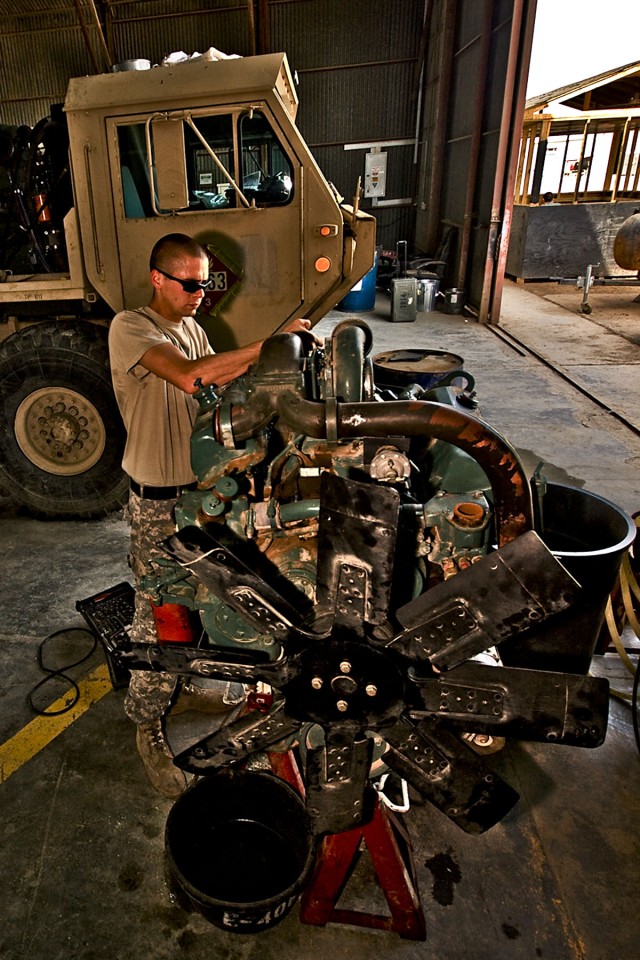
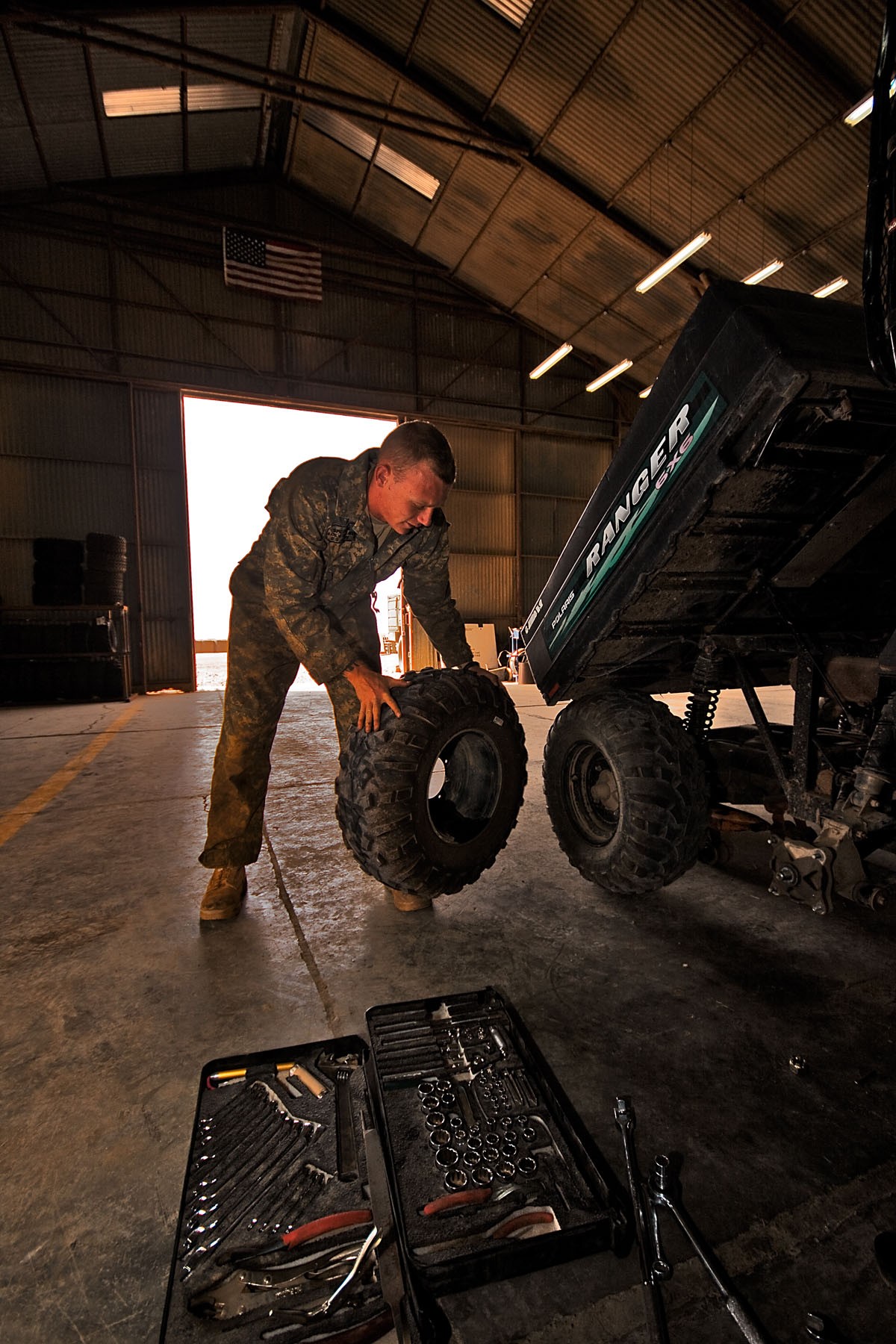
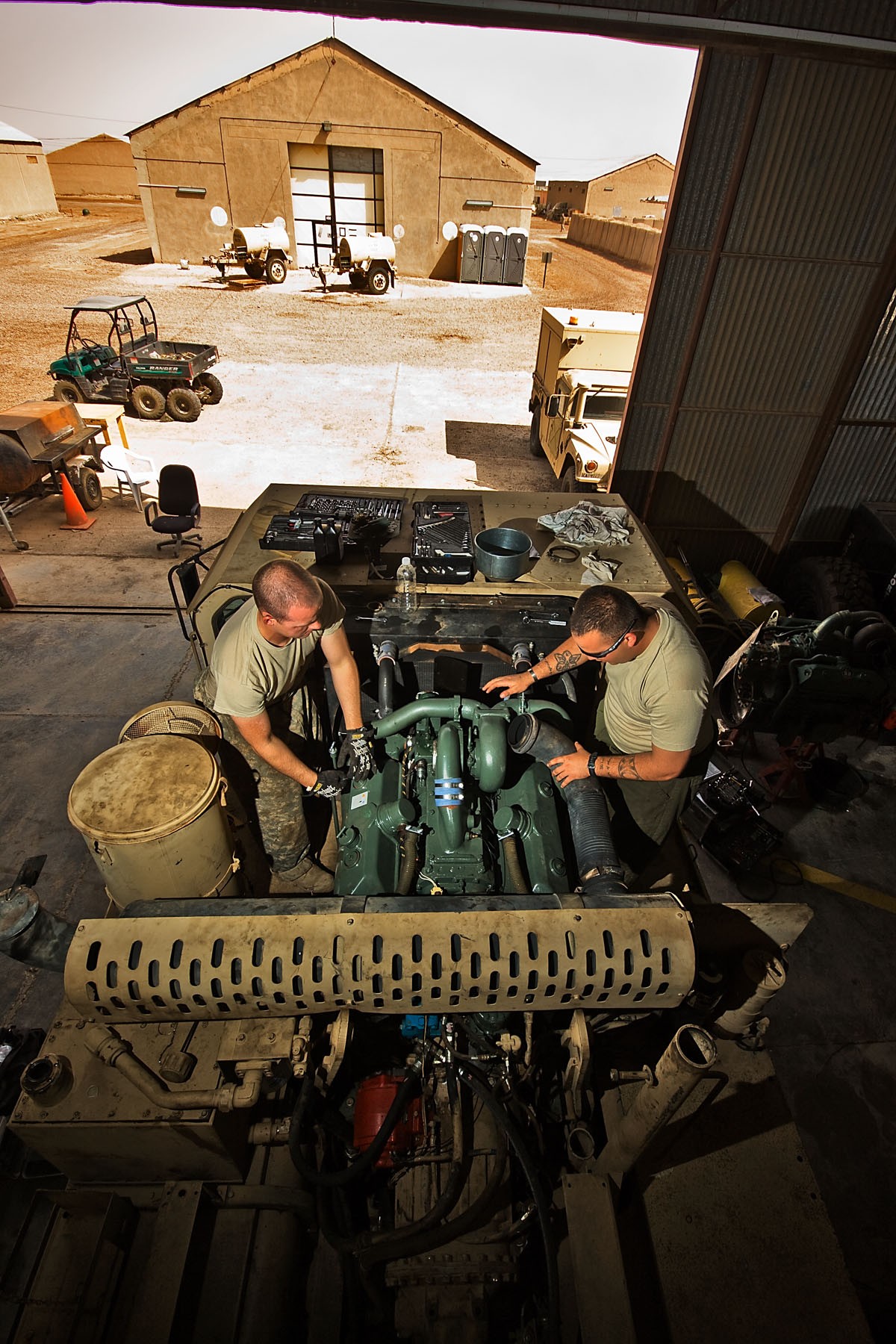
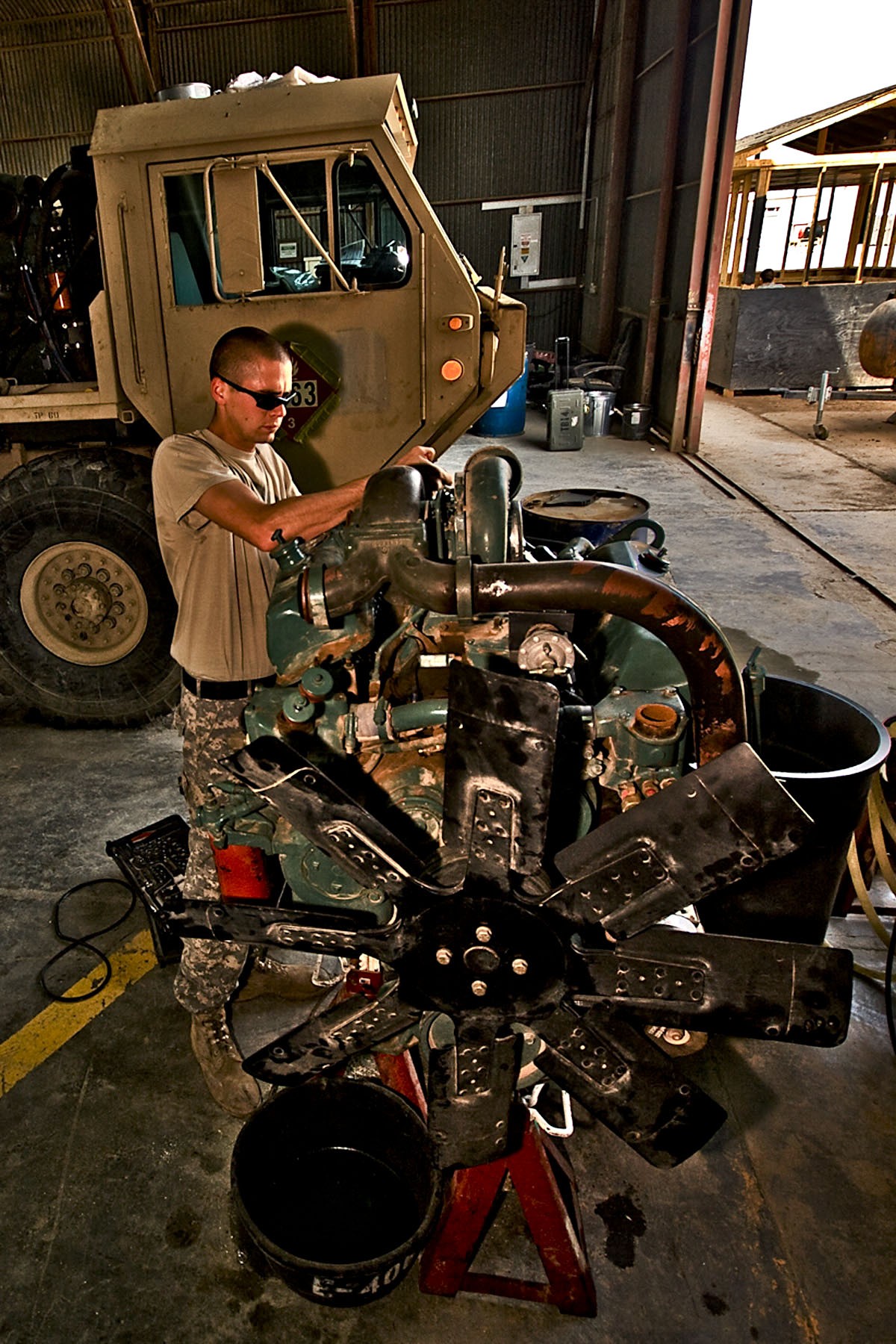
Social Sharing